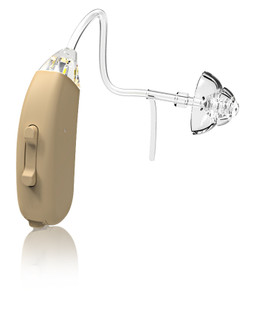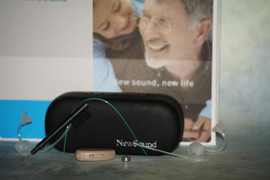The Convenience Factor: Are Rechargeable Hearing Aids Truly More User-Friendly?
Posted by DR Paul on Oct 16, 2024
In today's fast-paced world, convenience is king. From smartphones to smart homes, the demand for efficient, user-friendly technology is at an all-time high. Enter rechargeable hearing aids—a modern innovation that promises to simplify the lives of those who rely on these essential devices daily. But are they truly more convenient than their traditional battery-powered counterparts? In this exploration, we'll delve into the pros and cons of rechargeable hearing aids, focusing on aspects such as daily use, charging routines, and travel implications. Whether you're a first-time buyer or considering an upgrade, this guide aims to provide valuable insights that will help you make an informed decision.
Rechargeable hearing aids touted as game-changer:
Rechargeable hearing aids have been touted as a game-changer in the realm of auditory assistance devices. At first glance, their appeal is undeniable; no more fiddling with tiny batteries or worrying about whether you have spares on hand. This promise of ease can be particularly attractive to individuals with dexterity concerns or those leading busy lifestyles who appreciate minimizing maintenance tasks. With rechargeable options, users simply place their hearing aids in a charging dock overnight and wake up to fully powered devices ready for another day of seamless sound.
Nuances involved in adapting to rechargeable hearing aids:
Yet, it's important to consider the nuances involved in adapting to rechargeable models. One major factor is the necessity of establishing a consistent charging routine—much like we do with our mobile phones. While this practice becomes second nature for most users over time, it does require an initial adjustment period where one must remember to charge their hearing aids regularly or risk being without them when needed most. This aspect can be seen as both a pro and con; while it eliminates battery replacement hassles, it introduces reliance on access to power outlets.
Rechargeable hearing aids benifits:
Another benefit often highlighted by proponents of rechargeable hearing aids is cost-effectiveness over time. Traditional disposable batteries can add up financially—especially if your device requires frequent replacements due to high usage levels or demanding features like Bluetooth connectivity. Rechargeable models typically come with built-in lithium-ion batteries designed for long-term use before needing replacement (usually several years). Although these models may come with a higher upfront price tag compared to non-rechargeable alternatives, many find peace knowing they’re investing in sustainability and reducing environmental impact through decreased battery waste.
Rechargable Hearing Aids travel considerations:
Travel considerations also play into determining whether rechargeable hearing aids might suit your lifestyle better than traditional ones would—particularly if you frequently embark on extended trips away from home base (and reliable electricity sources). Some travelers prefer disposables because they ensure continued functionality without needing access points for recharging purposes along journeys where power availability may prove unpredictable at times! On-the-go recharge stations (such as portable power banks) are becoming increasingly popular solutions among globe-trotting audiophiles seeking uninterrupted auditory experiences despite geographic challenges encountered abroad!
Rechargable hearing aid drawbacks:
However convenient these features seem initially though – there still exist drawbacks potential buyers should heed carefully before committing themselves wholesale towards adopting this cutting-edge technology whole-heartedly just yet either way around currently available choices within marketplaces today! For example: not all brands offer universal compatibility across platforms meaning certain accessories might prove incompatible unless specifically designed accommodate particular manufacturers' specifications exclusively instead thereby restricting consumer options somewhat unnecessarily perhaps depending upon individual preferences circumstances encountered respectively throughout course everyday living needs accordingly too!
Conclusion:
In conclusion, while rechargeable hearing aids offer numerous benefits such as ease of use and long-term savings potentiality environmentally speaking alike overall —they aren’t necessarily suitable everyone universally either necessarily outright unequivocally so therefore prospective purchasers ought weigh pros cons judiciously alongside personal priorities requirements determining optimal solution fits best respective situations ultimately achieving satisfactory outcomes.










